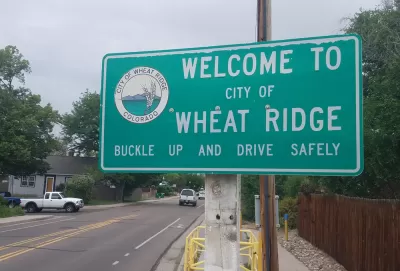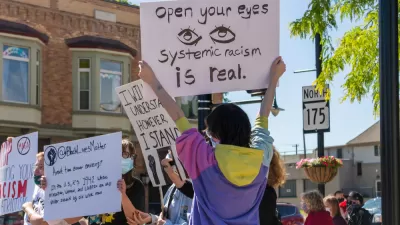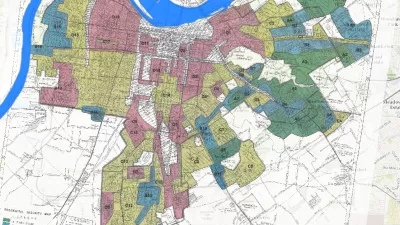A symbolic, but necessary, action.

The Denver suburb of Wheat Ridge City Council recently approved a resolution declaring race- and religion-based covenants ‘illegal and unenforceable,’ according to an article by John Aguilar for the Denver Post.
According to Aguilar, the resolution “directed staff to find city-owned properties that might have such stipulations and remove them from real estate records. The city also pledged to ‘prepare and make available to private property owners the materials to remove such covenants as permitted by statute.’”
As noted by Aguilar, Wheat Ridge is one of the first municipalities in the state to produce such a resolution, although some states, such as Connecticut, have recently passed legislation to the same effect.
“To some, Wheat Ridge’s efforts might seem unnecessary and redundant given the U.S. Supreme Court’s Shelley v. Kraemer ruling in 1948, which struck down race and religion-based covenants as illegal. The court’s opinion was further codified 20 years later, when the Federal Fair Housing Act banned race-based deed restrictions once and for all,” writes Aguilar. While conceding that the resolution passed unanimously by Wheat Ridge leaders on Monday evening is largely symbolic, [Wheat Ridge Mayor Pro Tem Rachel] Hultin said it is important to acknowledge and address the outwardly racist policies that shaped housing policy in Colorado, and the country as a whole, for decades.”
FULL STORY: Wheat Ridge revisits racist history in housing policy, “untying these nasty, nasty knots”

Study: Maui’s Plan to Convert Vacation Rentals to Long-Term Housing Could Cause Nearly $1 Billion Economic Loss
The plan would reduce visitor accommodation by 25,% resulting in 1,900 jobs lost.

North Texas Transit Leaders Tout Benefits of TOD for Growing Region
At a summit focused on transit-oriented development, policymakers discussed how North Texas’ expanded light rail system can serve as a tool for economic growth.

Why Should We Subsidize Public Transportation?
Many public transit agencies face financial stress due to rising costs, declining fare revenue, and declining subsidies. Transit advocates must provide a strong business case for increasing public transit funding.

How to Make US Trains Faster
Changes to boarding platforms and a switch to electric trains could improve U.S. passenger rail service without the added cost of high-speed rail.

Columbia’s Revitalized ‘Loop’ Is a Hub for Local Entrepreneurs
A focus on small businesses is helping a commercial corridor in Columbia, Missouri thrive.

Invasive Insect Threatens Minnesota’s Ash Forests
The Emerald Ash Borer is a rapidly spreading invasive pest threatening Minnesota’s ash trees, and homeowners are encouraged to plant diverse replacement species, avoid moving ash firewood, and monitor for signs of infestation.
Urban Design for Planners 1: Software Tools
This six-course series explores essential urban design concepts using open source software and equips planners with the tools they need to participate fully in the urban design process.
Planning for Universal Design
Learn the tools for implementing Universal Design in planning regulations.
City of Santa Clarita
Ascent Environmental
Institute for Housing and Urban Development Studies (IHS)
City of Grandview
Harvard GSD Executive Education
Toledo-Lucas County Plan Commissions
Salt Lake City
NYU Wagner Graduate School of Public Service





























